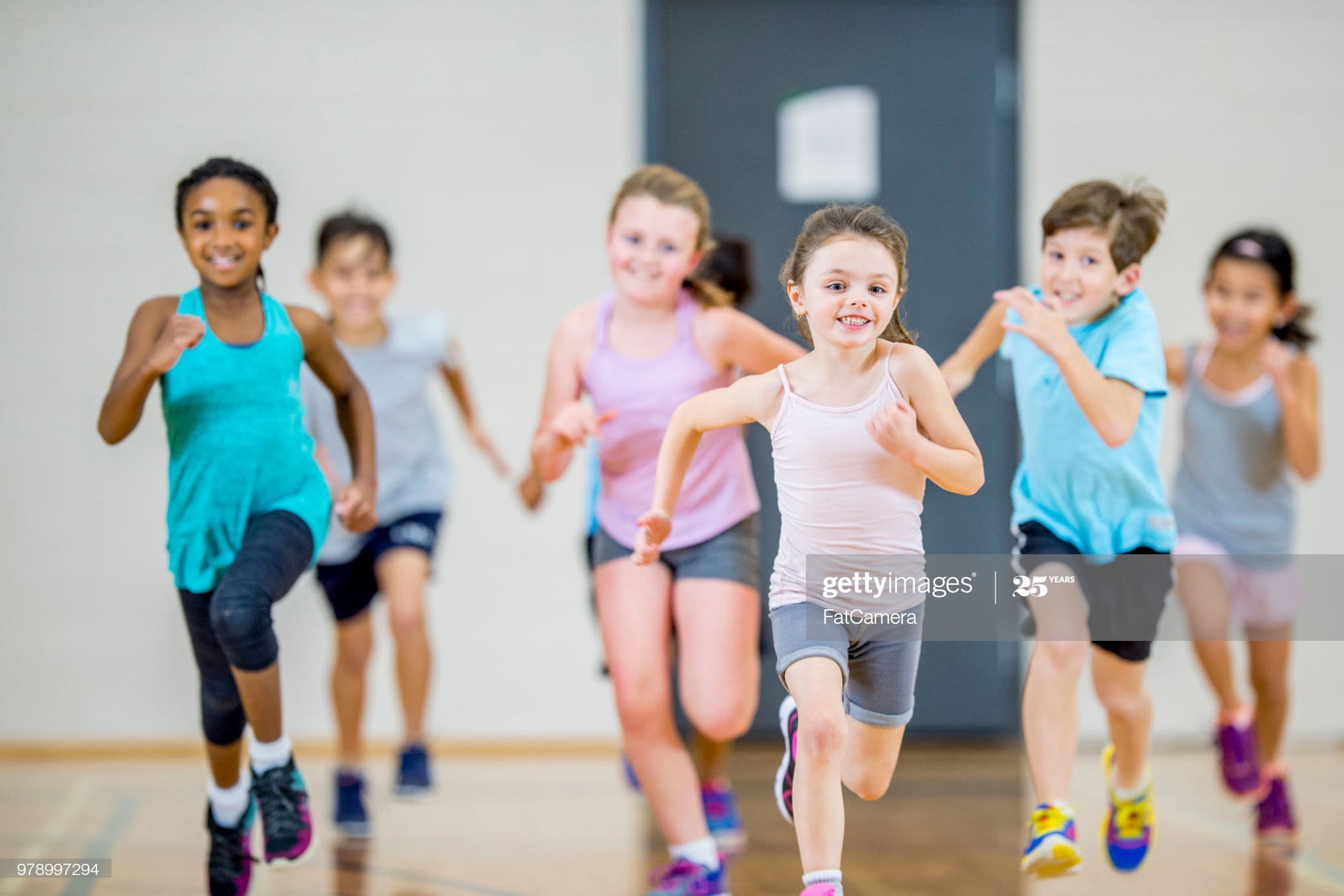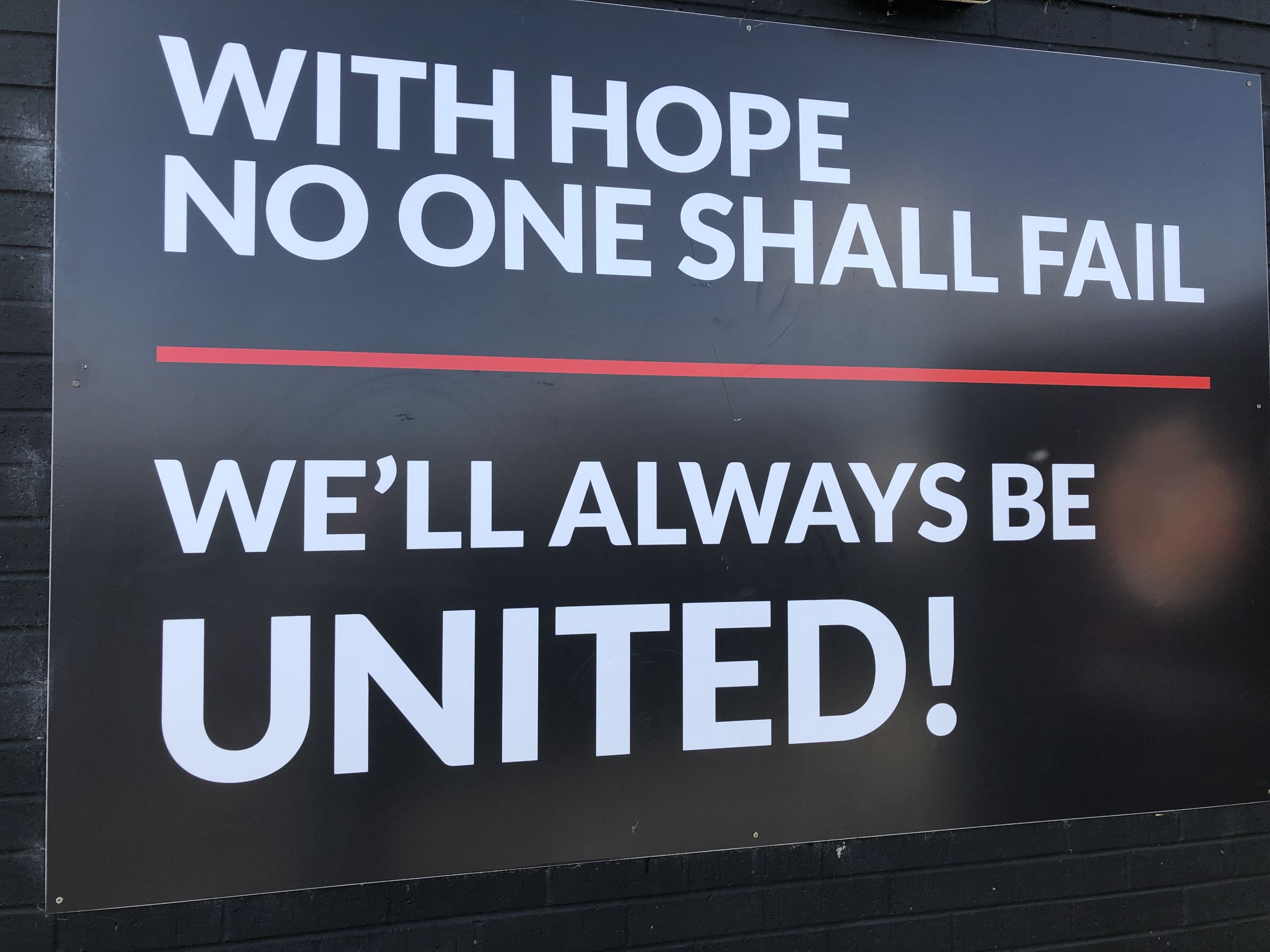How Does Sport Bring Communities Together?
Article No. 5: Reducing Childhood Obesity

Title Picture - A group of children exercising inside of a gym at school (Fat Camera / Getty Images)
Harry Crowe investigates the importance and significance of how sport and physical activity can benefit people and communities through a range of social and cultural outcomes and what more needs to be done to help further raise awareness. This article focuses on children's charity 'Youth Sport Trust' and the excellent work they do to help reduce childhood obesity in the UK.
Eat. Sleep. Game. Repeat.
For many young children in today's generation, that is their motto, their guard of honour.
In a digital age filled with social media and the latest up-to-date technology, including smart phones, tablets and gaming consoles, children are becoming distracted and lethargic.
“Getting the nation moving every day is essential,” says Chris Wright, Youth Sport Trust Head of Health & Wellbeing.
“Research shows that 3.8 million young people (53 per cent) do not meet the Chief Medical Officer’s guidelines of an average 60 active minutes a day. Too many children and young people are not meeting the recommended levels, and this is a particular issue for children and young people from black and minority ethnic communities, teenage girls, those with disabilities and children from a lower socio-economic group.”
As part of its 25th anniversary, Youth Sport Trust is hoping to address these and other alarming issues.
They aspire to achieve this through a four-year strategy, launched in 2018, tackling six objectives (transforming physical education, removing barriers to sport, unlocking potential, empowering activism, championing insight, and strengthening foundations).
“In children, physical activity is critical for motor development, cognitive improvement, psychosocial and cardio-metabolic health; reducing body fat and helping to increase academic achievement,” says Chris. “Children and young people who are physically active are more likely to continue the habit into adult life.
“We know that there is a strong link between attainment and educational outcomes and the health and wellbeing of pupils. At a personal level it’s fun and sociable – and helps people stay physically and mentally well.”

Spennymoor Town football club motto
Spennymoor Town football club motto
Founded in the summer of 2011, an academy in the heart of County Durham.
Spennymoor Town Youth football club was introduced to provide opportunities to aspiring players of all ages, genders, and abilities, ranging from mini dribblers to professional programmes all in the process of their one club policy.
“We grew that from nine players to where we are now, over 600 in the academy with over 70 coaches,” says Tony Wilson, Managing Director at Spennymoor Town football club. “We have coaches from UEFA A, UEFA B, all the way down to level one and we have a unique coaching development plan which is second to none.
“When I took the role as managing director and put the first board together, I wanted to keep the board small so there was four of us and it was very focused otherwise you can have too many opinions. We had the skillset and the mantra was #oneclub, one voice all the way through and that is generated while we have Matt Gould, Jamie Chandler, Rob Ramshaw, Glen Taylor, James Roberts.
“First team players who have got full time jobs come and help us and work with our young people because they get this. We are one club. So, they wanted to pass on their learning and their development to the young people and you just need to look at the mascots on match day, these guys are idols to them, and the players recognise that but handle themselves in the correct way in front of them.”
This is where sport can use its power to offer a beacon of hope and help change their lifestyle.
But what causes childhood obesity?
Chris stated: “Lack of physical activity can contribute to childhood obesity, which has been described as one of the most serious public health challenges in the 21st Century. Currently in England more than one in five children are overweight or obese when they begin school, with that rising to one in three children by the time they leave primary school. It is the ambition of the Government to halve childhood obesity rates by 2030 and significantly reduce the health inequalities that persist as outlined in Childhood Obesity: a plan for action.”
Youth Sport Trust's impact report in 2019 presents positive findings highlighting '630,000 young people have benefited from training and opportunities to participate in enabling them help lead high quality inclusive sport and play' while of the 26,771 adults trained, '97 per cent thought the content was good or very good'.
“We commissioned research which found that 64 per cent of UK adults agreed that PE should be a core subject on the curriculum alongside English, maths and science,” adds Chris.
According to the poll, which was conducted by YouGov, the other 46 per cent also believed that it was 'wrong to take secondary school pupils out of PE classes in favour of extra tuition for other core subjects'.
“We know parents want to take a more active role in getting children active, helping them to lead active lives and value PE in schools but they are time precious and sometimes need support and guidance on how they can achieve this, especially in the early years.”
As recommended by the Chief Medical Officer, a primary school in Newton Aycliffe worked alongside the 'Active 30 Durham Campaign', which helps schools in the region encourage pupils to live a happier and healthier life by engaging in 30 minutes of moderate to vigorous intensity activity every day.
Video Credit: Sedgefield School Sport Partnership
Byerley Park Primary School won an award in the 'East and South East Primary School Contribution to Sport and Physical Activity' category for their enthusiasm and devotion in delivering the programme to a high standard towards its fellow pupils.
And if other schools across the country followed this initiative or something similar, many more young children would reap the rewards of staying physically and mentally active.
That's what's satisfying about sport and exercising in general. It unlocks potential in us all, motivates us to be stronger and helps connect and interact with people from a wide range of communities. If anything, we're lucky to have it at our disposal.
However, there is always room for improvement in spreading the message and raising further awareness on social and cultural outcomes within sport and physical activity, surrounding topics involving mental wellbeing, female participation, inclusion, volunteering and reducing childhood obesity.
Together it's important we build an active nation, not just for us but for future generations to come.
